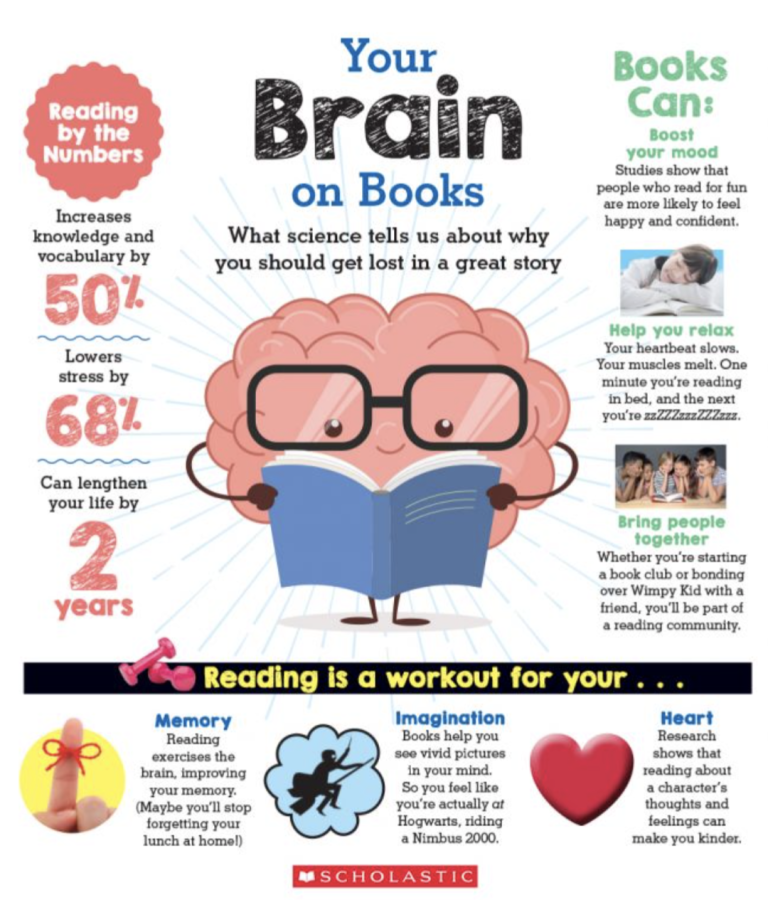How Regular Reading Affects Your Intelligence
May 11, 2023
Many wonder if reading helps strengthen people’s intelligence and allows them to have more brainpower. The truth is, that it can be beneficial.
Many people can sit down and get lost in a book for hours. However, some despise reading and can never seem to find a type of genre they are interested in and do not think that reading will benefit them so they do not bother to do it.
Although, it has been revealed that reading can increase intelligence and boost brainpower at an early age. Real Simple, a website that lists all of the positive effects of reading, states that “Exposure to vocabulary through reading (particularly reading children’s books) not only leads to higher scores on reading tests but also higher scores on general tests of intelligence for children. Plus, stronger early reading skills may mean higher intelligence later in life.” When kids start reading at an early age, it can help strengthen their brains, allowing them to retain information quicker and perform better in school.
Some may say that reading takes a toll on people’s bodies. Many people become so attached to books that they forget there is a whole world around them. They become stuck in the same position for hours and do not realize it. For example, Keren Deli published an article talking about the negative effects that reading can have and it explains that “reading is indeed associated with eye strain and comes at the expense of exercise and other physical activities. Frequently related are poor diets and digestive problems, an unwelcome weight gain or loss, and generalized exhaustion.” People who make it a habit to become absorbed in a book and forget about everything else tend to not realize how much time they had spent reading and develop unhealthy practices.
Although this may be a reasonable concern for some readers, studies have proved that reading acts as a healthy workout for the brain. Real Simple reveals that “with age comes a decline in memory and brain function, but regular reading may help slow the process, keeping minds sharper longer.” Again, reading only benefits the brain but it is the reader’s responsibility to read at reasonable levels and times.
If people fear that they will lose track of time when getting lost in a book, they should make sure that they set a timer to snap them back into reality after a certain amount of time. People should practice getting all other chores done and begin reading at a reasonable so that they can still get a good night’s sleep and enjoy the pleasures of reading after a stress-filled day.

















































